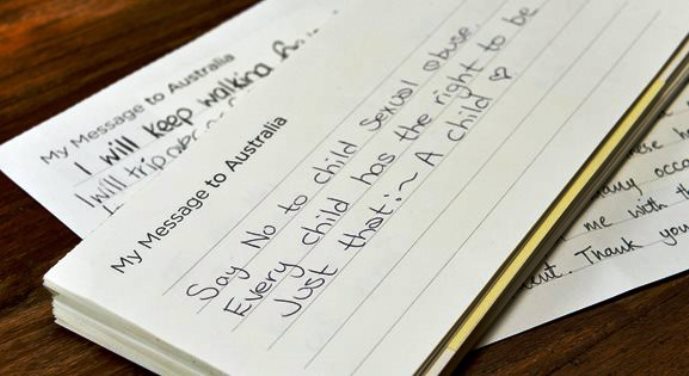
The Royal Commission into Institutional Responses to Child Sexual Abuse continues. In the past couple of weeks, the Commissioners have been hearing evidence from Catholic clergy. Some of the numbers
are scary:
In total, between 1980 and 2015, 4,444 people alleged incidents of child sexual abuse relating to 93 Catholic Church authorities. The abuse allegedly took place in more than 1,000 institutions. The average age of victims was 10.5 for girls and 11.6 for boys. The overwhelming majority of survivors were male. Almost 1,900 perpetrators were identified and another 500 remained unidentified. Thirty-two per cent were religious brothers, 30% were priests, 29% were lay people and 5% were religious sisters.
The royal commission said 37% of all private sessions it held with survivors from all institutions related to abuse in the Catholic Church.
The Church rightly stands condemned for allowing the abuse to occur with seemingly little or no consequence to the perpetrators. The Royal Commission is hearing evidence that suggests that canon law (the law of the Catholic Church) forbids
reporting, that vows of celibacy are not to
blame, and that the Church doesn’t understand the depth of the problem their senior clergy (management) has
ignored.
Clergy in the Catholic Church are not solely at fault here,
Anglicans,
Salvation Army,
Jehovah’s Witnesses and other
religions, as well as other organisations such as the
defence force and
educational facilities are also implicated. No doubt the Commission will make some recommendations and due process will take its course. Those that are found to have offended according to the laws of the land will serve their punishment and one would hope that the process does give some closure and benefit to those people who were the victims of these horrific crimes.
Apart from the need to get to the bottom of institutional abuse of children, the Royal Commission is a demonstration of the axiom that power corrupts and absolute power corrupts absolutely. It is probably fair to suggest that in all the cases above, the priest/minister was in a position of power over those whom they abused. If the parents of the children were told about the problem, they too were probably in a vulnerable position where they were torn by their belief in what their children were telling them versus their belief that the morals and ethics of the religious or other association conducting character checks of their representatives were sound.
The point here is that most religious teachers and those in positions of power over the young and vulnerable perform their role exceptionally well and regardless of your personal opinion on religion, there are countless examples of good work for the community done by those who follow various religions, such as health care, family support, childcare, education, visitation to the old and infirm, assistance to those who are homeless and so on. We shouldn’t assume that the deeds of a few reflect in any way the deeds of many. It is less certain that we shouldn’t be asking why the senior members of the organisation (the management for want of a better word) have been less that ethical with their dealings to eliminate the risk to children from predators within the organisation.
It’s another example of power corrupts and absolute power corrupts absolutely. Why else would Catholic Bishops transfer clergy who had been found to be preying on young children to other areas rather than report the crime to the authorities? Surely there would have been someone with the morals and ethics who suggested at the time while the transfer would hide the problem for some time, eventually there would be hell to pay (pun intended).
And so, it has come to pass. The highest-ranking member of the Catholic Clergy, Cardinal George Pell has refused (on health grounds) to return to Australia to attend the
Royal Commission and may be charged with some crimes. Others too seem to have less morals and ethics than the standards they preach; others will probably also be charged. In a number of the senses of the phrase,
Jesus wept seems accurate.
It is an unfortunate reality that the Royal Commission is necessary. Hopefully an exploration of the systemic failures of a number of organisations that ‘turned a blind eye’ or thought some other inappropriate management practices would make the problem disappear, will be effective in the elimination of similar practices in the future. We all have to remember that the majority of those who are members of organisations that are subject to the investigations of the Royal Commission are just as horrified as we are? They deserve better.
Current rating: 0 / 5 | Rated 0 times